Week ahead in Parliament
- Published
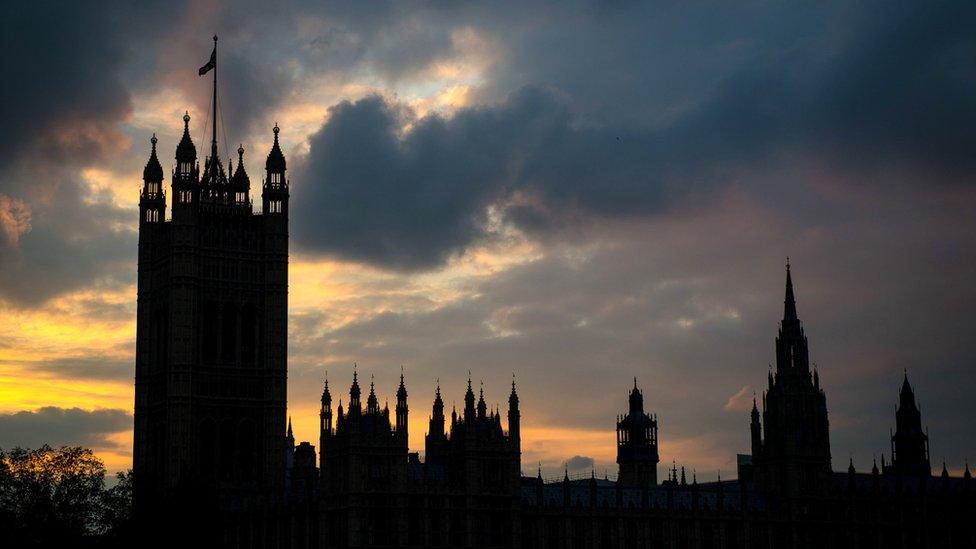
Against the background of a relatively bland parliamentary week, Westminster will seethe with life after the local elections, and with the European elections now looming on the horizon.
After a couple of weeks of close encounters with the electorate - culminating in some bruising results for the two big parties - there will be furious internal debate about Brexit, and some of it may spill over into the chamber.
Thursday's debate remembering the late John Smith - the Labour leader who died 25 years ago - could become the venue for a coded discussion of the current state of his party and its future direction.
Offstage, the Conservatives' backbench 1922 committee will be addressed by the PM, and the Parliamentary Labour Party will also meet - I imagine the results of the local elections might come up.
The wild card for the week is the former Defence Secretary Gavin Williamson. Might he take his case to the Commons?
All MPs can seek the permission of the Speaker to make a personal statement in the Chamber, and these are often used by MPs whose conduct has been questioned, as Mr Williamson's has been.
Personal statements are heard without interruption, there are no questions and the Speaker does not take points of order about them - but the text has to be cleared with the Speaker in advance and the MP then has to stick to it.
So, within those restrictions, it would be open to Mr Williamson to put his case before MPs - and if he took that course of action, it would be quite an occasion.
Remember Geoffrey Howe? A quick look at the Alan Clark Diaries for 13 November 1990 brings back the importance of the occasion - "He was personally wounding - to a far greater extent than mere policy differences would justify", and he captured the delight on the Labour benches, "grinning from ear to ear, they oooh'd and aaah'd dead on cue".
It can be very dangerous when sacked ministers bite back.
Watch out, too, for developments around an impending report from the All Party Parliamentary Group on Adult Survivors of Childhood Sexual Abuse - its chair, Sara Champion, is expected to raise the findings and recommendations in the Commons and seek a debate.
Here's my rundown of what promises to be a short but eventful week:
Tuesday 7 May
MPs return from the Bank Holiday weekend to Health and Social Care Questions at 14:30 BST. The usual crop of post-weekend statements and urgent questions can be expected from 15:30.
The day's Ten Minute Rule Bill, proposed by the Conservative Charlie Elphicke, seeks to help consumers transfer their mortgages between providers and ban the sale of mortgage debt to unregulated institutions.
Mr Elphicke is particularly concerned about people who are trapped in a mortgage where the interest rate might be as much as 7%, unable to switch to the lower rates available elsewhere.
He estimates there are perhaps 200,000 people in this position, effectively trapped in their current mortgages by affordability tests.
He also wants to stop the Treasury selling their mortgages to vulture funds, which he says can have harsh and unfair consequences for the mortgage holder.
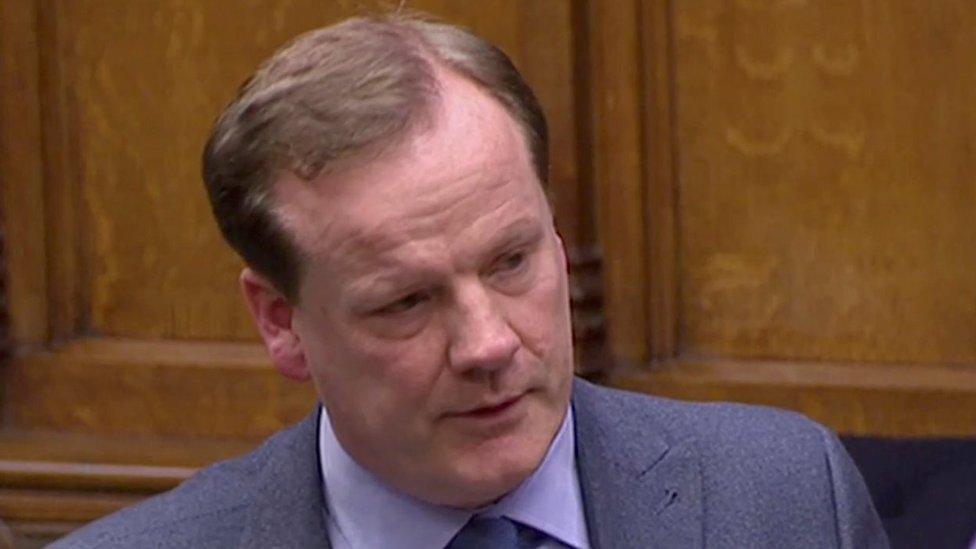
Conservative Charlie Elphicke will present a Ten Minute Rule Bill
The main legislative business is the Second Reading debate on the Wild Animals in Circuses (No. 2) Bill - this bans circus operators in England from using wild animals as part of a travelling circus.
Similar legislation is already in force in Scotland and Wales - and there are already some restrictions in place in England.
In Westminster Hall, debates include Labour MP Catherine West celebrating the work of women human rights defenders globally (11:30); Labour's Danielle Rowley on claimants having to pay premium rates to use the universal credit helpline at a time when they are already struggling financially (13:00); and Conservative ex-army officer Leo Docherty on the highly topical issue of UK policy towards China (16:30).
On the Committee Corridor, the Treasury examines the impact of Business Rates at 13:00, with evidence from the pub and hospitality trades.
In the Lords at 14:30, the usual half-hour of questions to ministers is followed by the Second Reading of the Kew Gardens (Leases) (No. 3) Bill.
This is a measure to extend the lease on Kew Gardens' land from the current 31 to 150 years.

Kew Gardens is in West London
This is intended to allow the Royal Botanic Gardens to become more self-sufficient in funding by developing new initiatives.
There have been a couple of attempts to achieve this through private members bills in the Commons and the Lords, but they have failed to make progress. But this is a government bill, so it will get the (probably quite minimal) debating time it requires.
Then it's more Statutory Instruments on Animal Health, Plant Health, Seeds and Seed Potatoes and on Alien Species in Aquaculture and Invasive Non-native Species, then on orders to continue with international sanctions against Syria, Russia, Belarus and Zimbabwe, and to maintain the Chemical Weapons Sanctions regime.
Finally there's an order on Financial Services Regulations.
Wednesday 8 May
The commons opens at 11:30 with half-an-hour of Scotland questions, followed by Prime Minister's Question Time.
Then, former Pensions Minister Angela Eagle has a Ten Minute Rule Bill to cap pension charges and require pension companies to publish information on their fees.
With 34 million people now saving for their pensions, she believes it is essential that the government moves to tackle "rip-off pension fees".
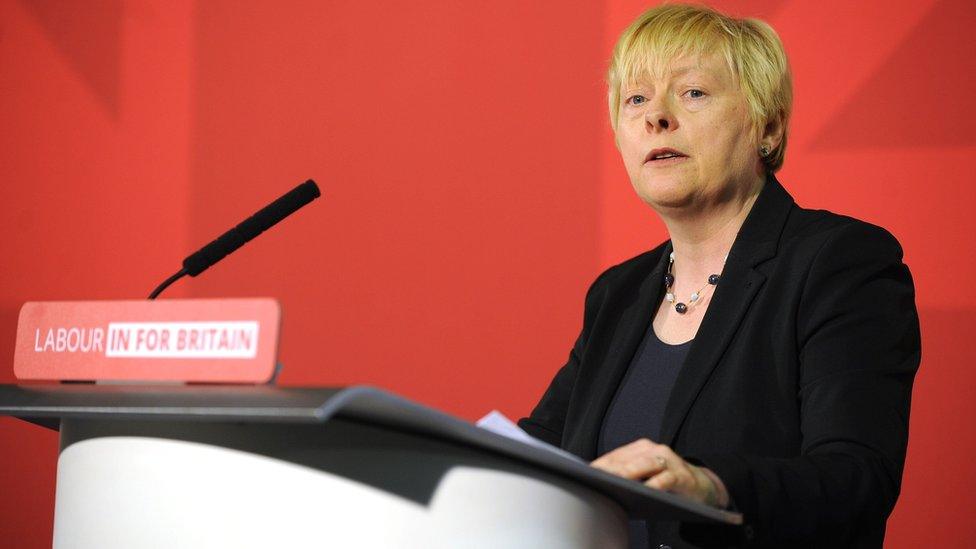
Labour's Angela Eagle will argue to cap pension charges
The main debate will be on an Opposition Day motion, to be announced.
In Westminster Hall, the opening debate at 09:30 is on the Report of the Children's Future Food inquiry - this involved asking 400 children from across the country about their food at home and at school, and about child food poverty.
Issues which emerged in the cross-party report included schools charging 90p for water, which then comes out of the free school meal allowance, and "holiday hunger" - when children who qualify for free school meals cannot access them during the school holidays.
Labour's Kerry McCarthy will open this debate
My Committee pick is the Digital, Culture, Media and Sport evidence session at 14:15 with Secretary of State Jeremy Wright.
Likely subjects include the new Online Harms White Paper and the Committee's continuing investigation into fake news.
In the Lords at 15:00, peers rattle through another series of Statutory Instruments on Trade in Animals and Related Products, Plant Health, Animal Health, Seed Potatoes and Food and the Common Agricultural Policy and Market Measures. Then come a group of SIs dealing with Railways and Rail Safety and International Road Passenger Transport.
Thursday 9 May
MPs open at 09:30 with 40 minutes of Environment, Food and Rural Affairs questions, followed by mini-question times to the MPs who speak for the Church Commissioners, the House of Commons Commission, and the Speaker's Committee on the Electoral Commission.
Then comes the weekly Commons Business Statement from the Leader of the House Andrea Leadsom.
Watch out for any signs of the government organising more "indicative votes" on Brexit, or even introducing the long-awaited Withdrawal Agreement Bill (the "WAB" in Westminster-speak).
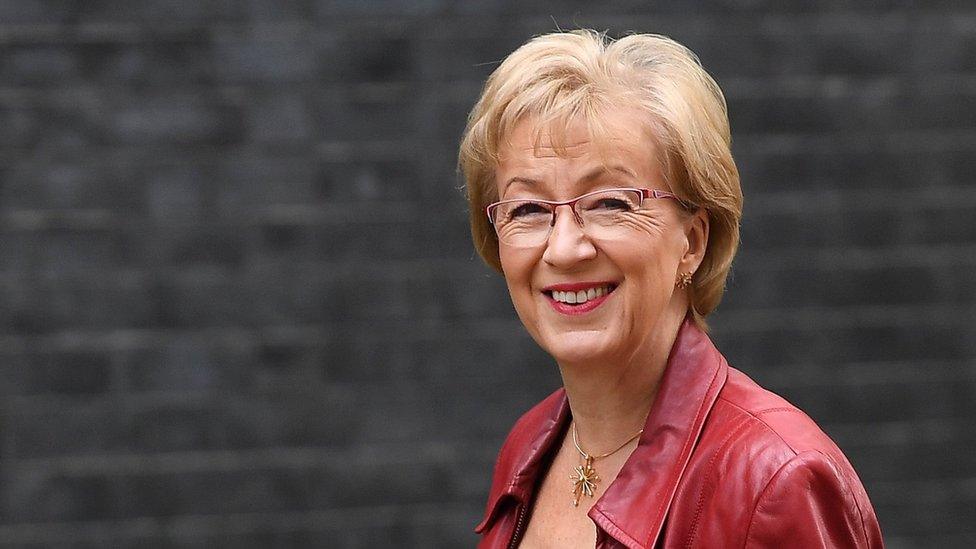
Andrea Leadsom will confirm the next week's business in the Commons
Also, look for the date of a debate on the equally long-awaited bill to set up the organisation which will oversee the multi-billion pound "Restoration and Renewal" programme for the Victorian Palace of Westminster - the home of Parliament.
Then Labour MP Chris Bryant and the Conservative ex-minister Sir John Hayes will lead a Backbench debate on Acquired Brain Injury.
There are 1.4 million people living with brain injury in the UK and as the survival rate from accidents has increased, the need has emerged for more neuro-rehabilitation facilities.
The All-Party Parliamentary Group on Acquired Brain Injury has produced a report, highlighting the issue.
Then comes a General Debate marking the 25th anniversary of the death of John Smith - then the Leader of the Labour Party.
Ian Murray will lead the debate and a likely speaker will be Margaret Beckett, then the deputy leader, who delivered a moving eulogy in the Commons.
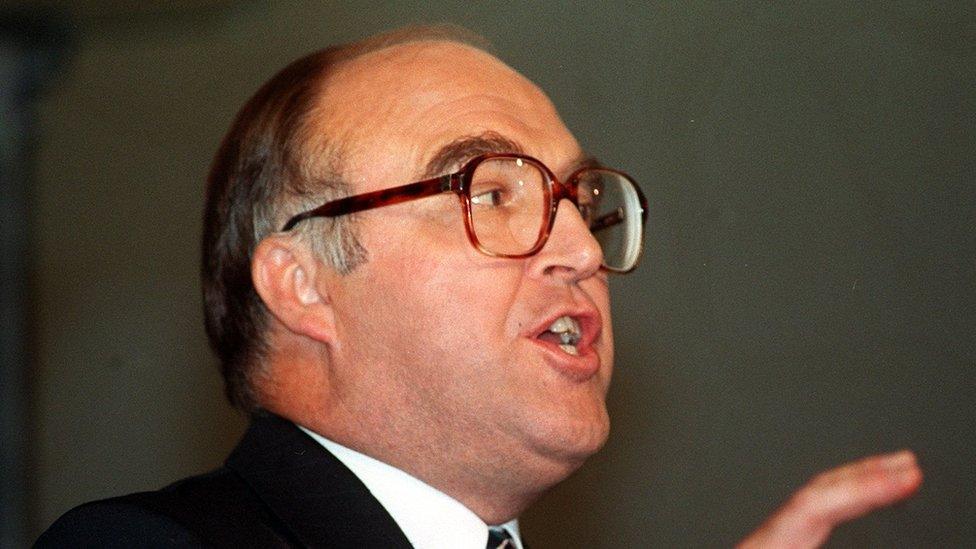
Former Labour leader John Smith died from a heart attack in 1994
In the Lords at 11:00, watch out for the question from Lord Holmes of Richmond, the former paralympian and member of the Disability Rights Commission, on increasing diversity in public appointments.
After that, the main events are two debates initiated by backbench peers.
The first is on the issues facing people with disabilities, and the potential for improved treatment and outcomes in the next 50 years, led by the Conservative, Lord Borwick.
That is followed by a debate on the conduct of debate in public life. Labour's Lord Harris of Haringey wants to discuss the divisive and corrosive nature of much modern political debate.
Finally, there is the Second Reading of the Holocaust (Return of Cultural Objects) (Amendment) Bill.
This is the private members bill steered through the Commons by the Conservative Theresa Villiers, which removes a "sunset clause" on legislation designed to facilitate the return of artworks stolen by the Nazis.
It is being piloted through the Lords by the Conservative Lord Sherbourne of Didsbury.
Neither House sits on Friday.